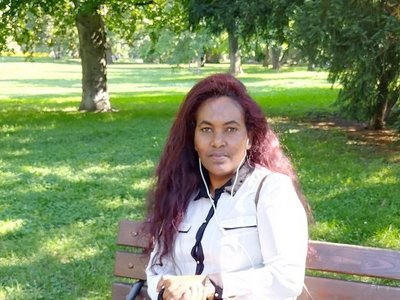

The 2022 International Geographical Union Congress was held in Paris, France between 18 July and 22 July 2022. The conference was organized by the International Geographical Union and the French National Geography Committee. The main theme of the conference was “Time for Geographers”, an occasion to gather scientific talents from all over the world to further cultivate a dialogue between geographies and societies.
It was a great experience to take part in such a forum of interchange with many research professionals and PhD students through virtual and live presentations that included empirical, conceptual and theory-based scientific presentations from all over the continents. Participating at the International Geographical Union (IGU), where many researchers from around the world congregate, was an immense pleasure to me. By attending this conference, I had a wonderful opportunity to learn about and develop a better understanding of a variety of methodological research approaches, as well as a diversity of thematic contents covering various geographical locations.
My study aims at assessing the subjective dimension of food security in Ethiopia's Tigray region, using self-reported parameters, applying the household food insecurity access scale (HFIAS) score and coping behaviors. We assessed how different livelihoods contribute to household food security where migration is being assessed both as a coping and adaptive livelihood strategy. The paper further examines the need to integrate a livelihood approach to evaluate food security. A qualitative research approach was used for the study where Participatory Research Approach (PRA) methods and household interviews were employed to acquire the data. The household food insecurity access scale (HFIAS) results show mildly food insecurity and rationing of consumption, remittance, selling off assets, daily labor, and borrowing money or grain were common coping strategies. The finding reveals that households with diversified livelihoods were likely to be more food secure. Therefore, we concluded that the overall livelihood has to be addressed to realize the rural household's food security.
As a researcher, presenting my research work at an international conference was an important experience for me. Receiving immediate constructive feedback from professionals and experts and responding to their challenging questions was another outcome that was helpful to improving my research project.
Lemlem Fitwi Weldemariam is a PhD candidate in Human Geography, Department of Geography and Regional Research University of Vienna since 2017. Her research project entitled Understanding the Food Security-Migration Nexus is a case study from the Tigray region, Ethiopia. She received both her Master’s degree in Rural Development, Department of Rural Development and Agricultural Extension (2011) and her Bachelor’s degree in Rural Development and Agricultural Extension (2007) from Haramaya University, Ethiopia. Prior to joining the University of Vienna, she worked at Haramaya University in Ethiopia as a graduate assistant, assistant lecturer, lecturer, student supervisor and project leader for community field projects. Furthermore, she served as the focal person for gender issues in her respective college in the home institution for two years.
